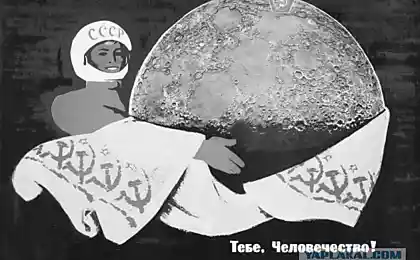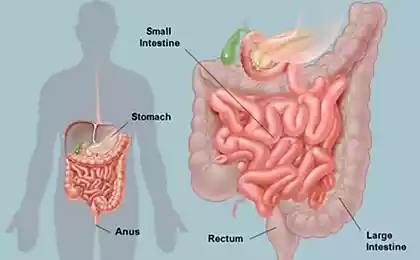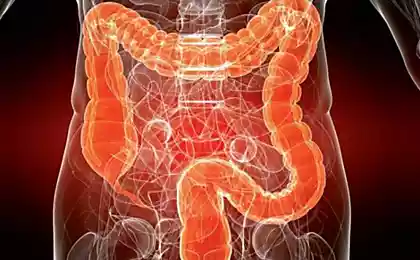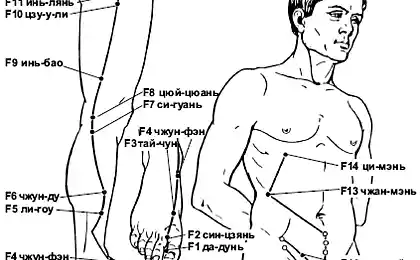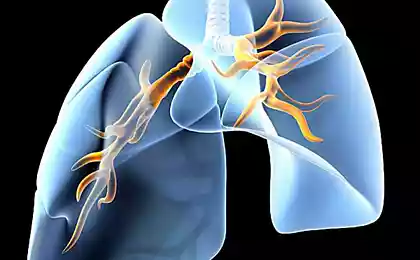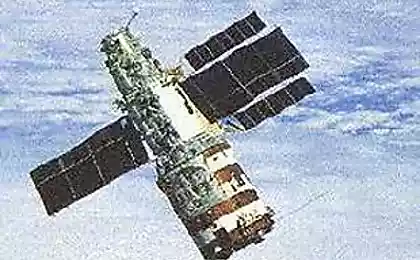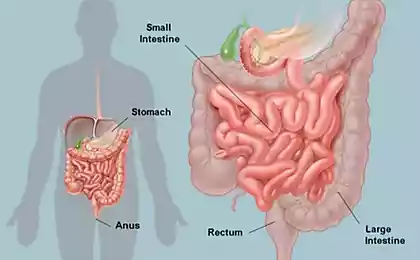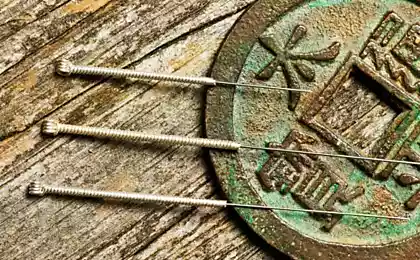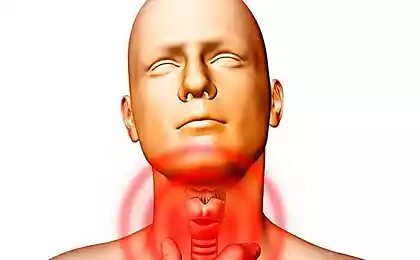549
Unbreakable Union: the heart — small intestine
Why our heart not tolerate the summer heat? Eastern philosophy refers to this on fire, lifts the veil of secrecy... But a dislike of heat is not the only heart whim.
Seventy nine million two hundred twenty nine thousand seven hundred seventeen
Thus, the predilection of man to spices and spicy food a doctor of traditional Chinese medicine (TCM) can be regarded as an attempt of the body to extra stimulation of the heart. After all, the "favorite flavor" of this body — bitter. But that's not all! If your wardrobe a lot of red things — this is also a reason to think about heart health. The dominance of red color in clothing can say that in the gamut of human emotions dominated by joy, which in TCM is interpreted as an emotion of the heart.
Heart
Let's first take a walk along the heart Meridian. His move starts directly from the heart, surrounds the tissues adjacent to this organ, and descends through the diaphragm to small intestine. The main pathway goes from the heart to the lungs and opens into the axillary region. Next comes prednimustine of the hand (ulnar side) across the palm to the nail bed of the little finger. Branch of the same canal on both sides of the esophagus to rise from the heart to the tissues connecting the eyeball to the brain.
The channel of the heart, as any other Meridian, there is a specific disease. They can manifest as thirst, dry throat, feeling of tightness in the chest or in the heart, and pain in the ribs. For the pathology of the canal is also characterized by yellowing of the eyes, a sensation of cold in the hands in the course of the canal, the sensation of heat or pain in the hands. Specific signs of disease of the heart channel — a violation of movements in the upper extremities, fragile nails on the fingers.
According to the principle of "external — internal" functionally interconnected heart with the small intestine. The meridians of those organs are also closely linked and are close by. Let's learn with ally heart.
Work in tandem
On top of the small intestine is associated with the stomach, and the bottom connects with the large intestine. In Chinese medicine the concept of "small intestine" includes the body and its Meridian and function. What kind of function is it?
The intestine is not simply promoting food but also changes under the influence of the spleen, — the parts of clear liquid and turbid, that is, performs filtering. In other words, in the small intestine further digestion and water coming out of the stomach: a "clean" separated from "muddy", digest of the purified nutrients and in the end, is the power of the whole body.
Murky liquid — waste — next, we head "piped" into the small intestine, and the unused fluid into the bladder. Pure liquid under the influence of spleen qi moving up to the lungs. So in the small intestine are generated and absorbed by normal body fluids — "juices of the body."
Thus, the small intestine is involved in absorption of water, which, passing through the kidneys, the result of "quenching the excess fire of the heart". These two organs are physiologically interconnected and affect each other as normal, and in the case of pathology.
Than heart will calm down
We already know that the heart can easily "ignite", and the Meridian of the small intestine if it is normal, "helps to take heart from the excess heat." The mechanism of this function is very interesting. It turns out that the Meridian of the small intestine is closely linked to... the Meridian of the bladder. More precisely, the Meridian small intestine Meridian and the bladder are two segments of one Meridian! And as soon as in the heart there is a surplus of heat, the small intestine in its Meridian takes him further to the Meridian of the bladder.
What happens? The man really feels a burning sensation when urinating, it may even be blood in the urine. "Heat of the heart Meridian goes to the small intestine" in TCM is the syndrome that describes this condition. In addition, it may be accompanied by cystitis with the appearance of painful ulcers in the mouth, insomnia. In European medicine, this condition is called neurosis of the bladder. The pharmaceutical preparations thus ineffective. If to apply the tools of TCM, bringing the heat from heart and small intestine, cystitis passes for some reason!
Meridian of the small intestine
The pathway of the small intestine starting from the base of the nail bed of the little finger. He climbs up the edge of the palm and the ulnar side of the back of the hand. Then, on the inner side of the back of the hand goes at the rear of the shoulder joint, leaning to the VII cervical vertebra. Next comes forward, the supraclavicular fossa, and penetrates to connect with the heart. Descends along the esophagus through the diaphragm to the stomach and enters the small intestine. From the supraclavicular fossa in the neck branch of this canal rises to the cheek, where it divides into. One branch reaches the outer corner of the eye down to the ear. The other passes under the eye, reaching its inner corner at the base of the nose.
If you know the course of the Meridian, it does not seem random location and "scatter" diseases of the Meridian of the small intestine: pain in the throat, under the jaw, swelling of the submandibular region ("where it is impossible to look back, if you call out"), the neck tumor; reduction in the severity of hearing, yellowness of the eyes; pain in the shoulders and elbows, vnutrenniaia the side of the arms. There are specific conditions, which characterize the disease of this channel: feeling of tightening in the girdle (if "broken shoulder"), weakness of the joints and atrophy of muscles of the elbow and even the appearance of warts. published
Author: Sergey Chermoshentsev
P. S. And remember, just changing your mind — together we change the world! ©
Source: gazeta-mz.ru/rubrics/medical_traditions/389
Seventy nine million two hundred twenty nine thousand seven hundred seventeen
Thus, the predilection of man to spices and spicy food a doctor of traditional Chinese medicine (TCM) can be regarded as an attempt of the body to extra stimulation of the heart. After all, the "favorite flavor" of this body — bitter. But that's not all! If your wardrobe a lot of red things — this is also a reason to think about heart health. The dominance of red color in clothing can say that in the gamut of human emotions dominated by joy, which in TCM is interpreted as an emotion of the heart.
Heart
Let's first take a walk along the heart Meridian. His move starts directly from the heart, surrounds the tissues adjacent to this organ, and descends through the diaphragm to small intestine. The main pathway goes from the heart to the lungs and opens into the axillary region. Next comes prednimustine of the hand (ulnar side) across the palm to the nail bed of the little finger. Branch of the same canal on both sides of the esophagus to rise from the heart to the tissues connecting the eyeball to the brain.
The channel of the heart, as any other Meridian, there is a specific disease. They can manifest as thirst, dry throat, feeling of tightness in the chest or in the heart, and pain in the ribs. For the pathology of the canal is also characterized by yellowing of the eyes, a sensation of cold in the hands in the course of the canal, the sensation of heat or pain in the hands. Specific signs of disease of the heart channel — a violation of movements in the upper extremities, fragile nails on the fingers.
According to the principle of "external — internal" functionally interconnected heart with the small intestine. The meridians of those organs are also closely linked and are close by. Let's learn with ally heart.
Work in tandem
On top of the small intestine is associated with the stomach, and the bottom connects with the large intestine. In Chinese medicine the concept of "small intestine" includes the body and its Meridian and function. What kind of function is it?
The intestine is not simply promoting food but also changes under the influence of the spleen, — the parts of clear liquid and turbid, that is, performs filtering. In other words, in the small intestine further digestion and water coming out of the stomach: a "clean" separated from "muddy", digest of the purified nutrients and in the end, is the power of the whole body.
Murky liquid — waste — next, we head "piped" into the small intestine, and the unused fluid into the bladder. Pure liquid under the influence of spleen qi moving up to the lungs. So in the small intestine are generated and absorbed by normal body fluids — "juices of the body."
Thus, the small intestine is involved in absorption of water, which, passing through the kidneys, the result of "quenching the excess fire of the heart". These two organs are physiologically interconnected and affect each other as normal, and in the case of pathology.
Than heart will calm down
We already know that the heart can easily "ignite", and the Meridian of the small intestine if it is normal, "helps to take heart from the excess heat." The mechanism of this function is very interesting. It turns out that the Meridian of the small intestine is closely linked to... the Meridian of the bladder. More precisely, the Meridian small intestine Meridian and the bladder are two segments of one Meridian! And as soon as in the heart there is a surplus of heat, the small intestine in its Meridian takes him further to the Meridian of the bladder.
What happens? The man really feels a burning sensation when urinating, it may even be blood in the urine. "Heat of the heart Meridian goes to the small intestine" in TCM is the syndrome that describes this condition. In addition, it may be accompanied by cystitis with the appearance of painful ulcers in the mouth, insomnia. In European medicine, this condition is called neurosis of the bladder. The pharmaceutical preparations thus ineffective. If to apply the tools of TCM, bringing the heat from heart and small intestine, cystitis passes for some reason!
Meridian of the small intestine
The pathway of the small intestine starting from the base of the nail bed of the little finger. He climbs up the edge of the palm and the ulnar side of the back of the hand. Then, on the inner side of the back of the hand goes at the rear of the shoulder joint, leaning to the VII cervical vertebra. Next comes forward, the supraclavicular fossa, and penetrates to connect with the heart. Descends along the esophagus through the diaphragm to the stomach and enters the small intestine. From the supraclavicular fossa in the neck branch of this canal rises to the cheek, where it divides into. One branch reaches the outer corner of the eye down to the ear. The other passes under the eye, reaching its inner corner at the base of the nose.
If you know the course of the Meridian, it does not seem random location and "scatter" diseases of the Meridian of the small intestine: pain in the throat, under the jaw, swelling of the submandibular region ("where it is impossible to look back, if you call out"), the neck tumor; reduction in the severity of hearing, yellowness of the eyes; pain in the shoulders and elbows, vnutrenniaia the side of the arms. There are specific conditions, which characterize the disease of this channel: feeling of tightening in the girdle (if "broken shoulder"), weakness of the joints and atrophy of muscles of the elbow and even the appearance of warts. published
Author: Sergey Chermoshentsev
P. S. And remember, just changing your mind — together we change the world! ©
Source: gazeta-mz.ru/rubrics/medical_traditions/389

